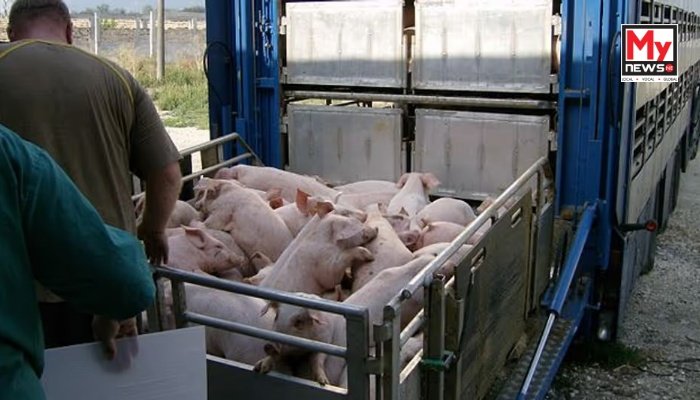Assam Government Issues Strict SOP to Curb African Swine Fever Spread, Tightens Live Pig Transport Rules
Guwahati: In a decisive move to prevent the spread of African Swine Fever (ASF), the Government of Assam has unveiled a comprehensive Standard Operating Procedure (SOP) regulating the transport of live pigs within and through the state.
The SOP, issued by the Animal Husbandry and Veterinary Department, seeks to protect Assam’s pig population and safeguard the livelihoods of thousands who depend on the piggery sector.
Under the new guidelines, every consignment of live pigs entering or moving within Assam must now be accompanied by a set of mandatory documents: a valid purchase bill, GST challan, E-way bill, and a health certificate from a Government of India-recognised laboratory certifying the animals are ASF-free. Each pig must also be individually verified by a government veterinary officer, who must certify its vaccination history and confirm it originates from an ASF-free zone. These certificates must be issued within seven days of travel.
To ensure thorough enforcement, veterinary inspection teams will be deployed at major interstate checkpoints, including Srirampur in Kokrajhar, Boxirhat in Dhubri, Byrnihat in Kamrup Metro, and Amguri in Sivasagar. These teams will inspect documents and physically examine the animals. Additionally, 2% of the pigs in every consignment will be randomly tested for ASF using rapid detection kits. If even one pig tests positive, the entire consignment will be quarantined, subjected to RT-PCR testing, and culled if infection is confirmed — with no compensation to the transporter or trader. All related expenses must be borne by the owner or operator.
The SOP also prohibits night-time transportation, unscheduled unloading, and pig-related train stopovers within Assam. Dumping of animal waste during transit is banned, and transport vehicles must be sanitised both before and after entering the state. Violations can lead to blacklisting and prosecution under the Prevention and Control of Infectious and Contagious Diseases in Animals Act, 2009.
The originating state of any consignment must notify Assam’s animal husbandry authorities in advance before sending pigs. Officials have warned that non-compliance with any provision of the SOP will attract strict legal consequences. The protocol will be subject to periodic reviews based on the evolving ASF situation in the region.
With this stringent SOP, Assam aims to reinforce its biosecurity measures, prevent outbreaks, and protect a key economic sector from the devastating effects of ASF.

